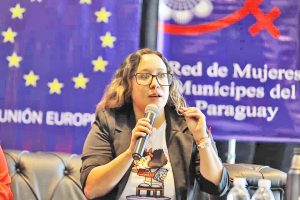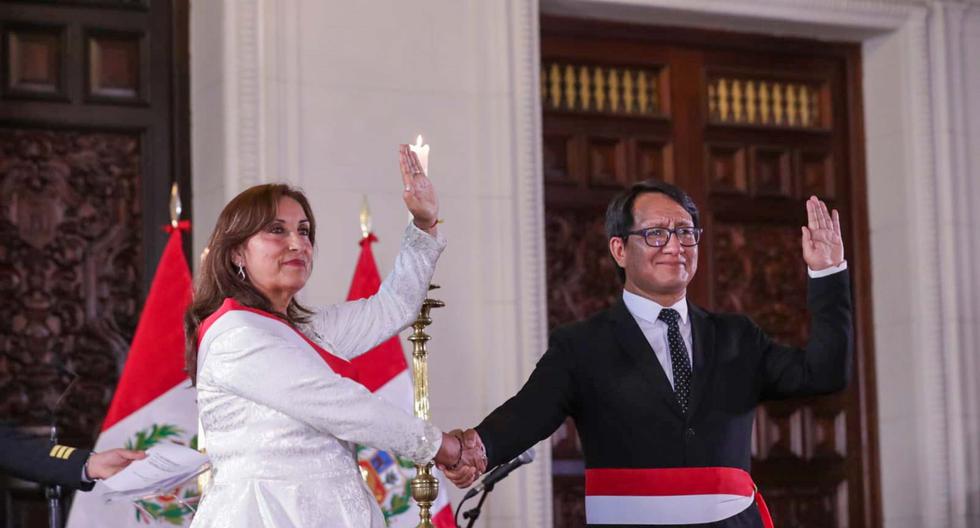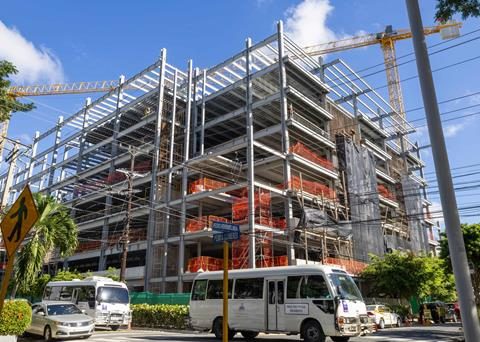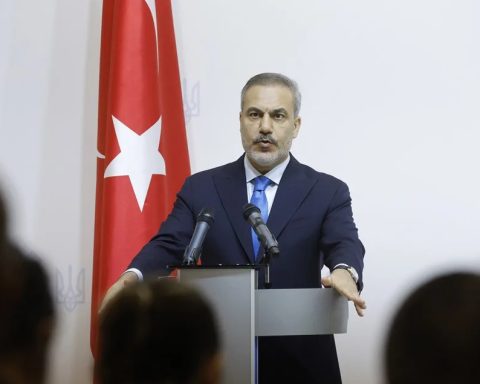What are you going to do that you are weak? Why don’t you stay at home? What are you coming to do? These verbal attacks were received by Patricia Dos Santos, pre-candidate for vice president for the Coalition of Opposition Parties.
The words may vary, but the effect is always the same for the victims; an intimidation that affects them emotionally, and, even in some cases, can affect their political work such as their participation in events or publications on social networks, causing them to be afraid to express their ideas or feel frustrated at not being able to perform freely.
Violence against women is a problem that unfortunately is still valid in our society in all areas. However, today there are many women who are not afraid to raise their voices and fight for their rights, and this is a great step so that new generations can root out these situations in the future.
In political matters, gender violence occurs often, even reaching physical attacks that can generate serious situations since women are usually quite minimized compared to men. Of course, not all politicians show that type of archaic mentality that a woman is not capable of working in this position, but there are always those who treat their colleagues less for the simple fact of being women.
Social networks and messaging systems are channels that, although they allow the exchange of ideas and interaction, are also propitious spaces for generating digital violence in the political and electoral arena.
Citizens also tend to show this type of rejection, for example, contempt for the political capacity of women and, on some occasions, detract from their work or capacity by comparing them with male legislators. In most cases, they tend to make harmful comments towards their physical appearance, their intellectuality or their ability to perform in the position they are in.

Discriminatory expressions or insults and discredit are the most common types of violence that the interviewees have received through the Internet.
EXPERIENCE OF THE CANDIDATES
After consulting candidates for elective positions from different parties such as Patricia Dos Santos, Johanna Ortega, Eugenia Peroni, Marlene Orué and Melissa Lacassa about their experience in terms of violence in politics, most agreed that yes, violence is always present in politics. social networks and technology in general, through discriminatory expressions about their abilities or discrediting their image when talking about their bodies or how they look. Many times they come from strangers, but in some cases they also come from close or acquaintances and even colleagues.
In this case, they mention that these comments sometimes affect and sometimes don’t, but that one learns to deal with it and that they find a way to prevent it from happening to other women. The solution they propose is the creation of a law against all types of violence or discrimination and also an internal work of each party so that women can feel safe and free spaces where they can express their opinions and show their ideas and projections.

Education is also a primary factor that they highlight as a solution to completely eradicate these situations of violence. Educate children, so that there is always respect for human beings, regardless of whether it is a man or a woman.
“Of course it affects (gender violence on social networks) at some point, but one continues to fight so that it does not happen to other women and to be able to eradicate violence,” Marlene Orué, candidate for deputy for the Concertación. “A more effective law against political violence against women are necessary tools”, Johanna Ortega, candidate for deputy for the Concertación.

“We always talk about sexist violence but we women are also the ones who are constantly degrading other women”, Eugenia Peroni, candidate for deputy for the Alianza Encuentro Nacional. “The affected person must understand that the problem belongs to the other and not with himself, because there are many people who take this as a personal problem”, Melissa Lacasa, candidate for deputy for “Republican Force”.
Digital violence that affects men and gender violence are different because the latter is related to being a woman and her conservative and traditional role.
SEXIST VIOLENCE
Digital gender violence is understood as a continuum of sexist violence that women already suffer in face-to-face settings. The 5 women; Johana Ortega, Marlene Orué, Eugenia Peroni, Patricia Dos Santos and Melissa Lacasa, are affected by the gender violence present on the internet, however, only one of them affirmed that this affected their political work.
Violence usually comes from strangers, but what is striking is that despite the fact that it deals with gender violence, not only men are the perpetrators, but also women themselves on many occasions.

Finally, they all agree that the solution to this is better education at home, rather than censorship on social networks.
The consequences of digital violence reveal its effectiveness in silencing women politicians, reducing their role and marginalizing them from public debate. Furthermore, they are a direct attack on the visibility of women and their full participation in public life. If the State does not fulfill its role of educating and offering better guarantees and security for female candidates, participation will be diminished, even more, than the low participation rates currently available (only 16% of women legislators are in Congress).
Although today there are many women who fight for equality, it is of the utmost importance that our leaders help by finding ways to protect women in politics, in order to safeguard democracy, and of course, if each person puts a With little effort to instill respect and tolerance within the home, we will be creating more tools so that in the future, perhaps, all kinds of violence can be rooted out.
Prepared by: Camila Bogarín and Víctor Ortiz.

















